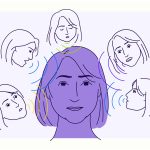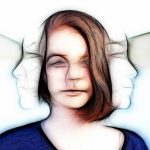1. Definition
Obsessive-Compulsive Disorder (OCD) is a common and chronic mental health disorder characterized by recurring, unwanted thoughts (obsessions) and/or repetitive behaviors (compulsions). Individuals with OCD may feel driven to perform compulsive acts to try to ease their stress or anxiety. Despite efforts to ignore or get rid of bothersome thoughts or urges, they return, leading to more ritualistic behavior — the vicious cycle of OCD.
2. Diagnostic Criteria (DSM-5-TR)
The DSM-5-TR outlines specific criteria for the diagnosis of OCD, which include:
- Presence of obsessions, compulsions, or both: Obsessions are defined as persistent thoughts, urges, or images that are intrusive and cause distress or anxiety. Compulsions are repetitive behaviors or mental acts that an individual feels driven to perform in response to an obsession or according to rules that must be applied rigidly.
- The obsessions or compulsions are time-consuming or cause clinically significant distress or impairment in social, occupational, or other important areas of functioning.
- The obsessive-compulsive symptoms are not attributable to the physiological effects of a substance (e.g., a drug of abuse, a medication) or another medical condition.
3. Prevalence and Impact
OCD affects approximately 2-3% of the population worldwide and can occur in both men and women equally. It typically begins in adolescence or early adulthood, although it can start in childhood. The disorder can be debilitating, significantly impacting daily functioning and quality of life. OCD often co-occurs with other mental disorders, such as anxiety disorders, depression, and body dysmorphic disorder.
4. Treatment Approaches
Effective treatment for OCD typically involves a combination of psychological therapy and medications:
- Cognitive-behavioral therapy (CBT), specifically exposure and response prevention (ERP), is the most effective treatment for OCD. ERP involves the exposure of the patient to the source of their anxiety or obsessions and teaching them to refrain from the compulsive behavior gradually.
- Medications: Selective serotonin reuptake inhibitors (SSRIs), such as fluoxetine, sertraline, and paroxetine, are commonly prescribed to help reduce the symptoms of OCD.
5. Challenges and Considerations
One of the biggest challenges in treating OCD is the reluctance of individuals to seek help due to stigma or the distressing nature of their obsessions. Additionally, OCD symptoms can be particularly resistant to treatment, with many individuals experiencing persistent symptoms despite therapy and medication.
6. Research and Future Directions
Current research on OCD is focused on better understanding the biological, genetic, and environmental factors that contribute to the disorder. Advances in neuroimaging have allowed researchers to study the brain structures involved in OCD, leading to potential new treatment targets.
Further Reading and Resources:




